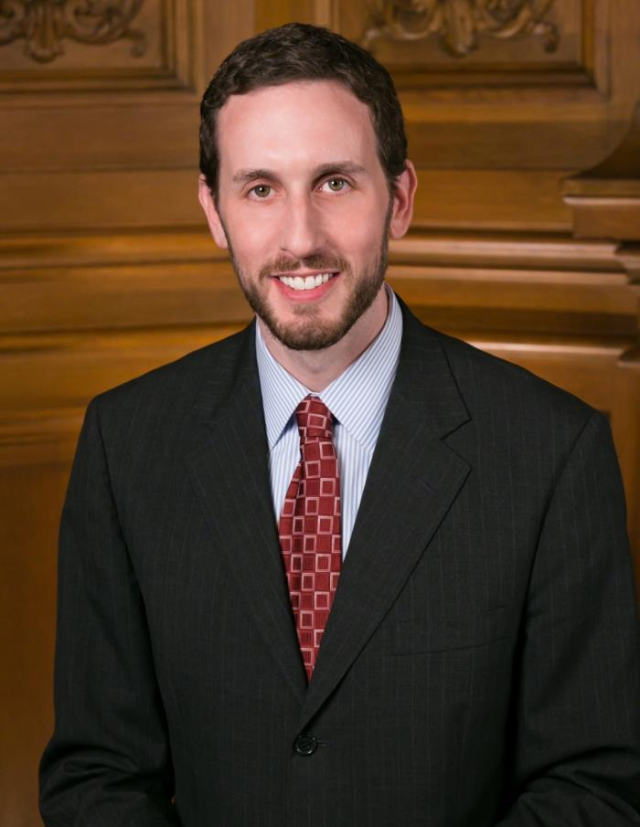Supe says that a room with no kitchen for $1,770 a month should count as “affordable housing”

By Tim Redmond
JULY 16, 2015 – Developers of new market-rate single-room occupancy hotels could rent some units to people making $65,000 a year and call that “affordable housing” under a plan pushed by Sup. Scott Wiener this week.
And if the developers sold the units, people making $107,000 a year would qualify to buy “affordable” housing.
The move essentially guts the idea of putting market-rate group housing under the city’s inclusionary housing ordinance by allowing developers to call “affordable” units that would rent or sell for what is currently market rate anyway.
SRO units were never an issue for the city’s inclusionary housing ordinance in part because there weren’t a lot of new units built by private developers in the past 30 years – and in part because most of those rooms were rented to low-income people.
Although the 2002 inclusionary housing law specifically states that developers of group housing should play by the same rules as everyone else, the Planning Department has never enforced that provision and has treated SROs as exempt.
But now we’re seeing higher-end SROs and micro-units coming onto the market, aimed at single people who are willing to live without a kitchen in a group setting. Frankly, they’re aimed at young tech workers who get their meals at the office and just need the equivalent of a dorm room to sleep in.
These are not the low-budget SROs that are common in the Tenderloin and the Mission. The projects coming on line are much more fancy – and are renting for close to $2,000 a month.
So Sups. John Avalos and Jane Kim have proposed legislation that would clarify existing law and instruct the Planning Department to treat market-rate group housing like any other type of development. The project sponsors would have to make at least 12 percent of the units available to people with incomes at or below 50 percent of the city’s average income – which for a single person is about $36,000 a year.
The federal government says that people should pay about a third of their income for housing, which would mean $12,000 a year for that income range, or about $1,000 a month.
But the developers don’t like doing that, because renting some units for less than they can get on the open market cuts into their profits.
Wiener said that he’s happy to see more group housing coming onto the market, and argued that forcing the developers to pay for deeper subsidies might make the projects harder to finance. So he moved an amendment at this week’s Land Use and Transportation Committee meeting that would allow developers to meet their affordable-housing obligations by renting to people making 90 percent of the city’s average income and selling to those making up to 150 percent.
That, Avalos said, “undermines the entire idea of the inclusionary housing law. These projects should be treated the same as any other market-rate housing.”
Wiener noted that the city has done a terrible job of creating middle-class housing. But Fernando Marti, with the Council of Community Housing Organizations, testified that “the idea that this is a place for 90 percent AMI is ludicrous.” He said that some of the micro-units now coming on the market are renting for about $1,900 a month – and at 90 percent of the city’s area median income, a person in one of the “affordable” units would be paying $1,770 a month.
So the developers would be fulfilling their affordable-housing commitments by renting for about what the market would let them charge anyway.
Kim noted that the Wiener amendment would “create a new standard for affordable housing.”
In fact, she announced, her office and the Mayor’s Office of Housing are currently working on a bill that would allow developers to build fewer affordable units if they rented them to lower-income people, and would make the affordable requirements much higher if the subsidized units were to go to people at 90 percent of AMI.
She urged Wiener to hold off until the city could have that conversation.
But Wiener declined, and pushed forward with his amendment, which passed 2-1. Supervisor Malia Cohen joined him in supporting it, while Kim voted no.
So the measure as amended will be back before the committee next week, and then will go to the full board – where the sponsors will have to try to amend out the damage that Wiener has done.
But I have been counting a lot of votes lately, and most of the time, the developers seem to have six.






